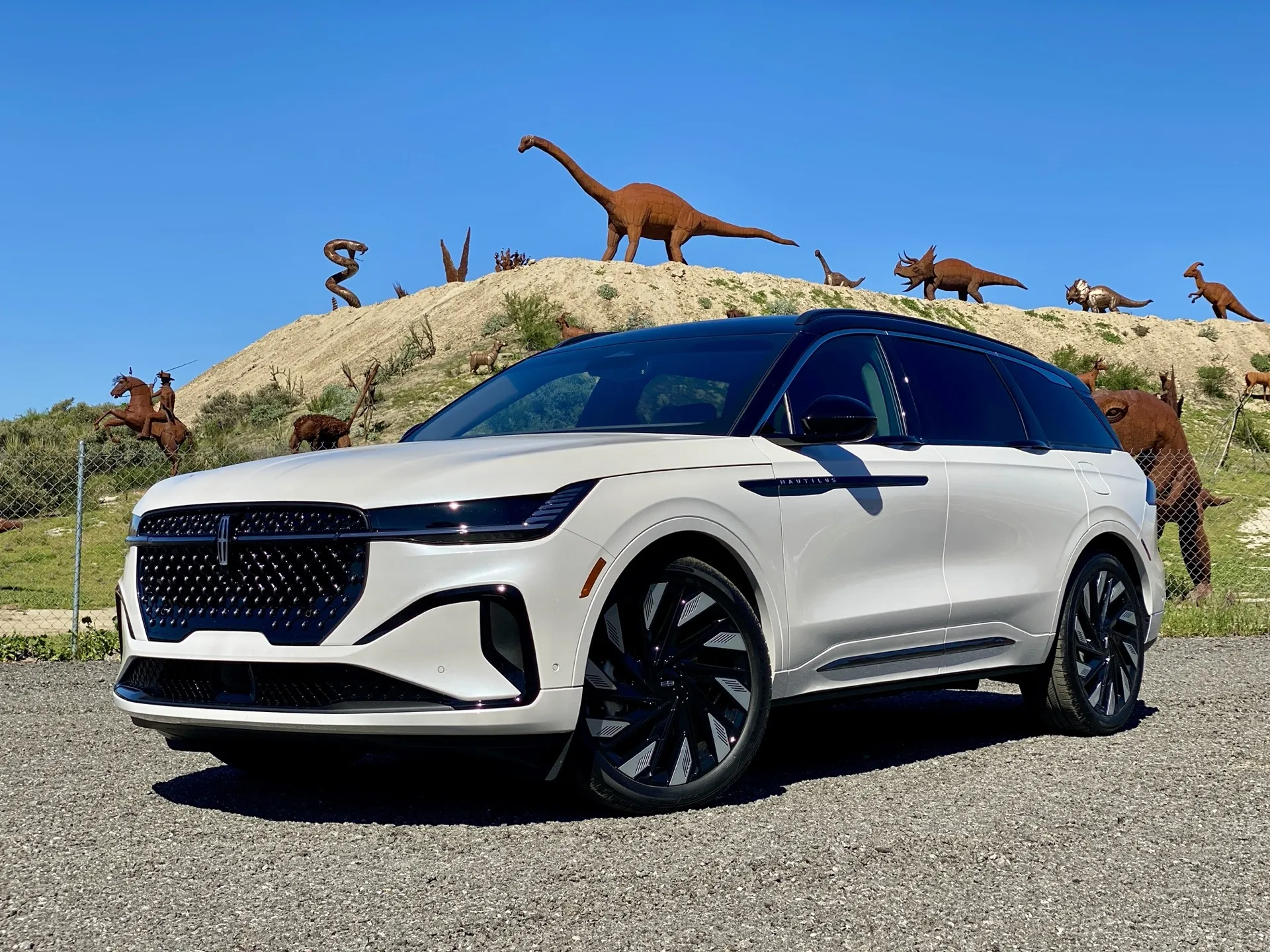The redesigned 2024 Lincoln Nautilus feels like a half step. It rides on a new platform but returns a satisfying turbo-4 base engine. It introduces a 30-mpg hybrid system that’s new to Lincoln and Ford but doesn’t feel new for the electrified marketplace.
The biggest step it makes is in its technological interface, but even that suggests potential. A cautious approach to whatever comes next might benefit from the incremental ramp up shown by the Nautilus.
As other automakers have pumped the brakes on the full shift to electric vehicles, Lincoln’s gradual introduction of new technology before new propulsion systems seems like the smart if not conservative play. The redesigned Nautilus shares a platform with the smaller Corsair, but several of its design elements call to mind the Lincoln Star concept. Expected for 2025, the Lincoln Star will be Lincoln’s first full battery electric crossover, and the concept’s panoramic display screen and yoke-like steering wheel take center stage in the new Nautilus. That larger multi-energy platform fits gas and hybrid propulsion systems, but Lincoln wouldn’t divulge if it would accept larger battery packs and motors.
Dimensionally, it seems designed to. It’s 2.0 inches taller than its predecessor, 1.1 inches wider, and 3.2 inches longer. At 193.2 inches long, it’s more than a foot longer than the Corsair but only 6.5 inches shorter than the redesigned Lincoln Aviator three-row crossover SUV. Its 114.2-inch wheelbase is closer in size to the Aviator than the Corsair.
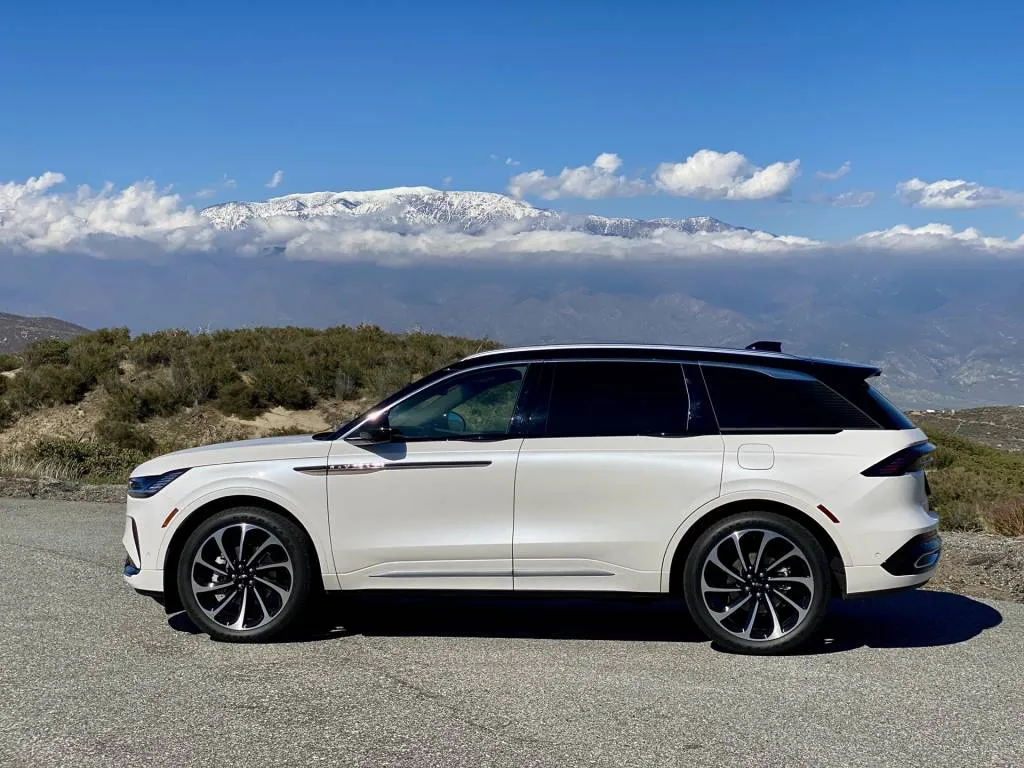
None of this translates to a battery pack filling the floor between the axles, but it does make for one of the roomiest midsize crossovers on the market. The rear seats can fit three people, but with 43.1 inches of rear legroom and plenty of head- and shoulder room, four adults front and back could find great comfort for a long weekend getaway. The 36.4 cubic feet of cargo space results in plenty of room for their luggage or golf bags. For shoppers who want a big crossover but don’t want the extra bulk of a third row, the Nautilus welcomes the big and tall.
The welcome comes from the exterior lighting, as well. The light bar running through the broad new grille knots the illuminated Lincoln star logo, and when you approach the light bar comes to life, curling into the daytime running lights like an embrace. Puddle lights also welcome occupants into a cabin that’s radically new for Lincoln.
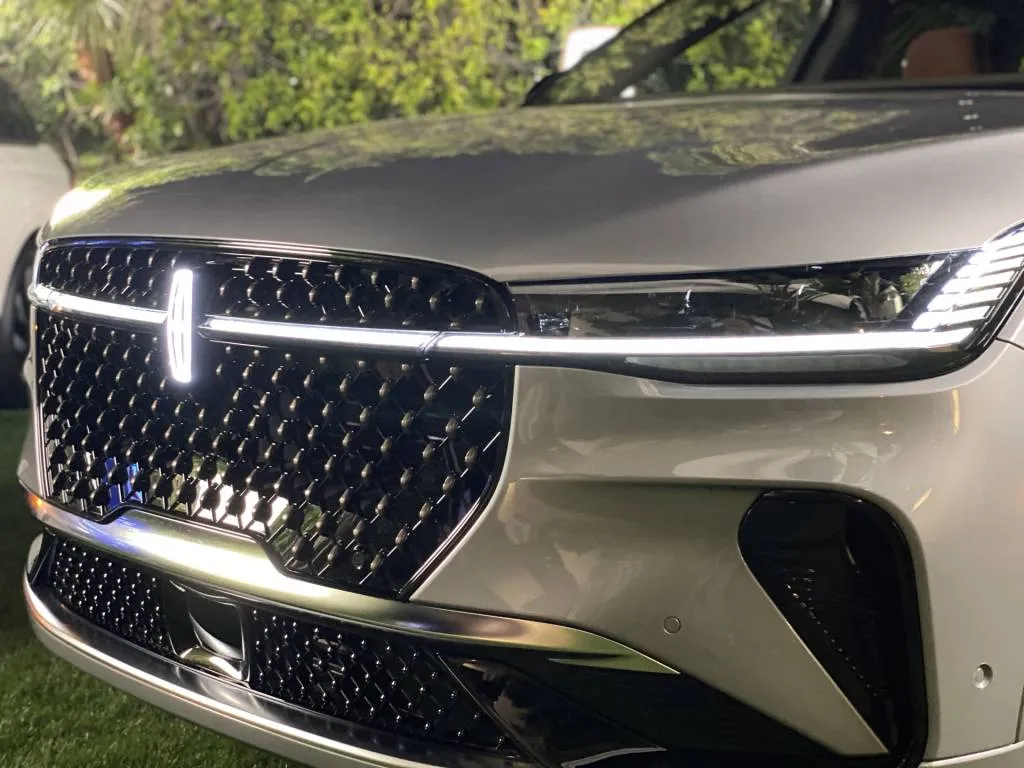
About that 48-inch screen in the 2024 Nautilus
The premium brand becomes luxury in top Black Label trims. My tester didn’t just have wood trim, it had Herringbone Marquetry Walnut wood trim. And that suede headliner? No, no, no, good sir, it’s Smoked Truffle Suede, s’il vous plait.
The clearest indicator of Lincoln’s preparation for an electrified future stars on the marquee of its 48.0-inch curved wall of screens at the base of the windshield. It’s not overwhelming, as in some other luxury cars with screens filling every dash space. In combining the functions from an instrument cluster and a head-up display, and wedging it closest to the sightline to the road, it’s visually and functionally safe. In terms of real estate, however, it has unrealized potential.
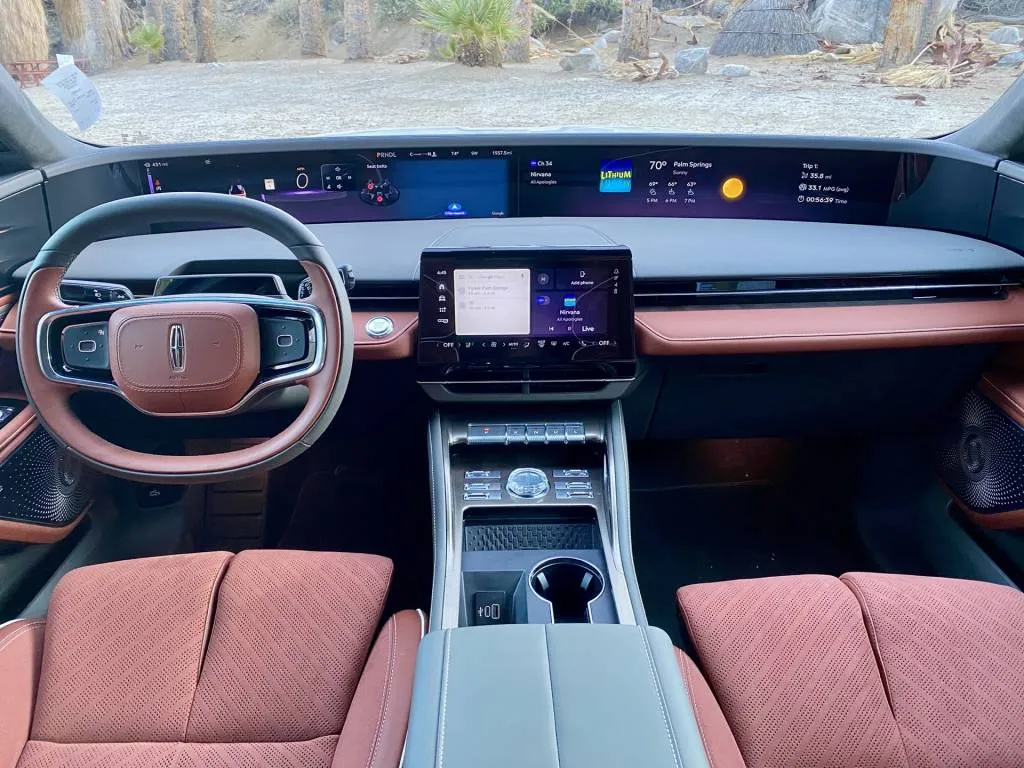
On the driver’s half, it incorporates some of the traditional elements you’d find in a digital instrument cluster, such as the navigation map, speedometer, and active safety feature indicators, such as one for Lincoln’s BlueCruise semi-autonomous driving system. Every 2024 Nautilus comes with a 90-day free trial of BlueCruise, then if you purchase it as a budled option on Premiere or Reserve trims (it’s standard on Black Label) it extends to a 4-year period, same as the basic warranty. After that point, even for Black Label models, the service and its over-the-air updates switch to a subscription model at rates currently unknown.
BlueCruise 1.2 adds automatic lane changed as long as the operator activates the blinker, and overall the system does a good job of maintaining the lane and distance from other cars. In my 10-mile test, it maintained the gap between the lead car as expected, and when a semi got too close on my passenger side, the system nudged the Nautilus over to the outside of my lane. The blue iconography that indicates it’s working in the display is clear and unmistakable, and the driver monitor camera kept me in check when my sunglassed eyes strayed from the road. That’s one thing the IIHS thinks all automakers should do better to keep drivers from misusing such systems.
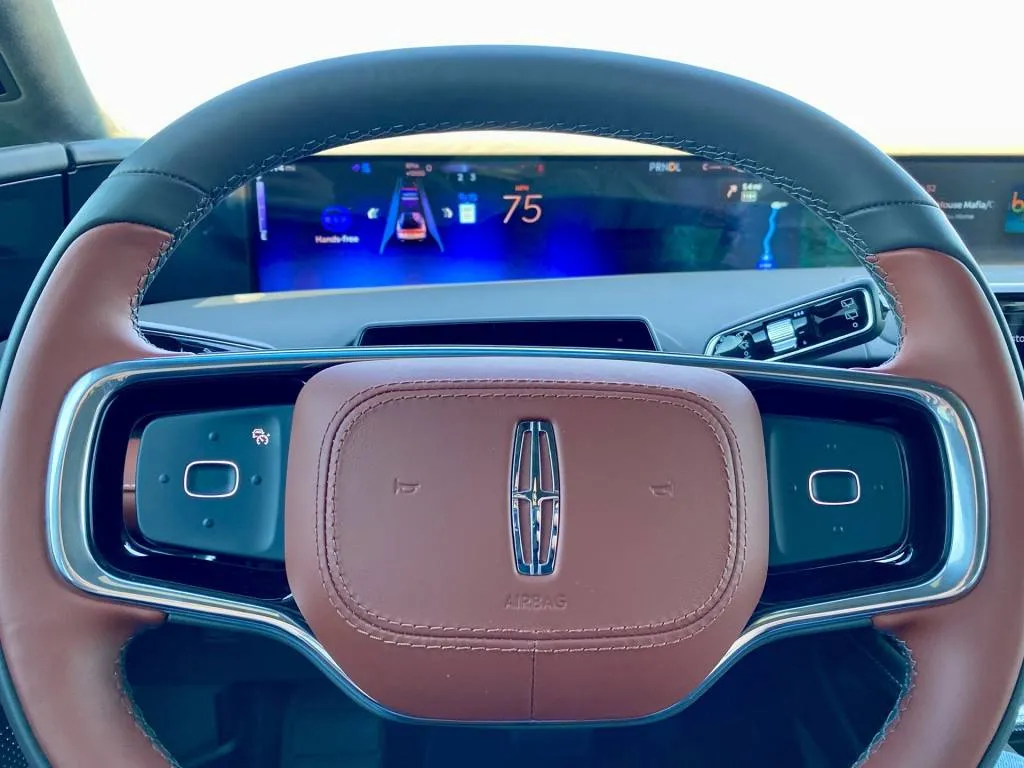
2024 Lincoln Nautilus
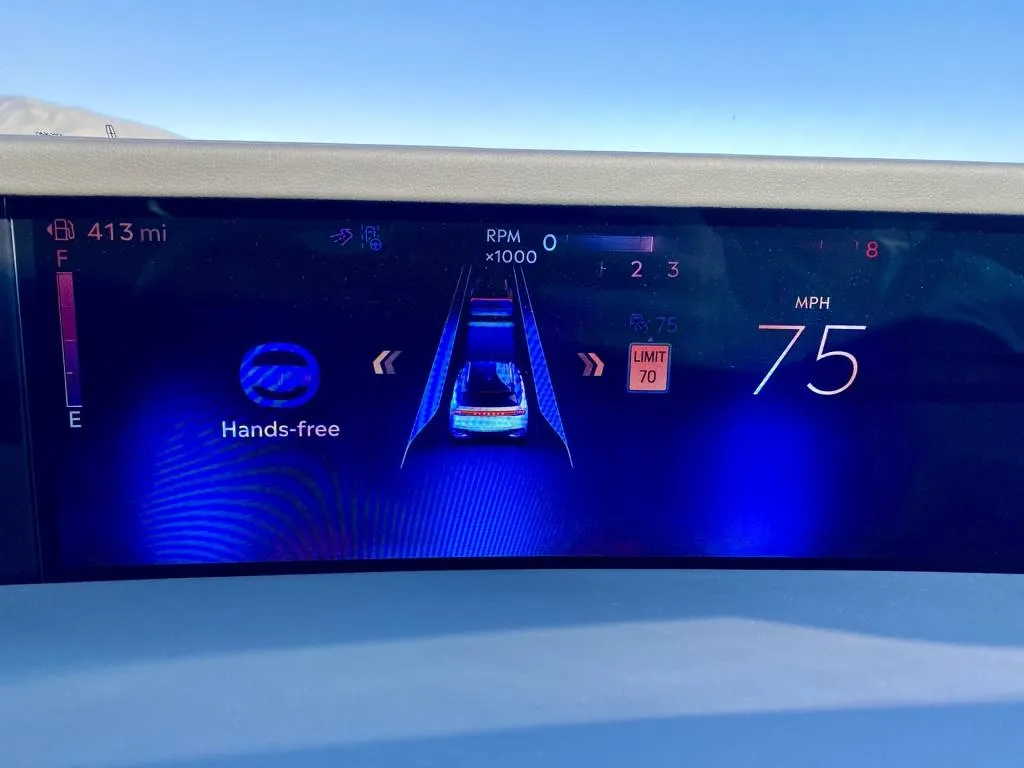
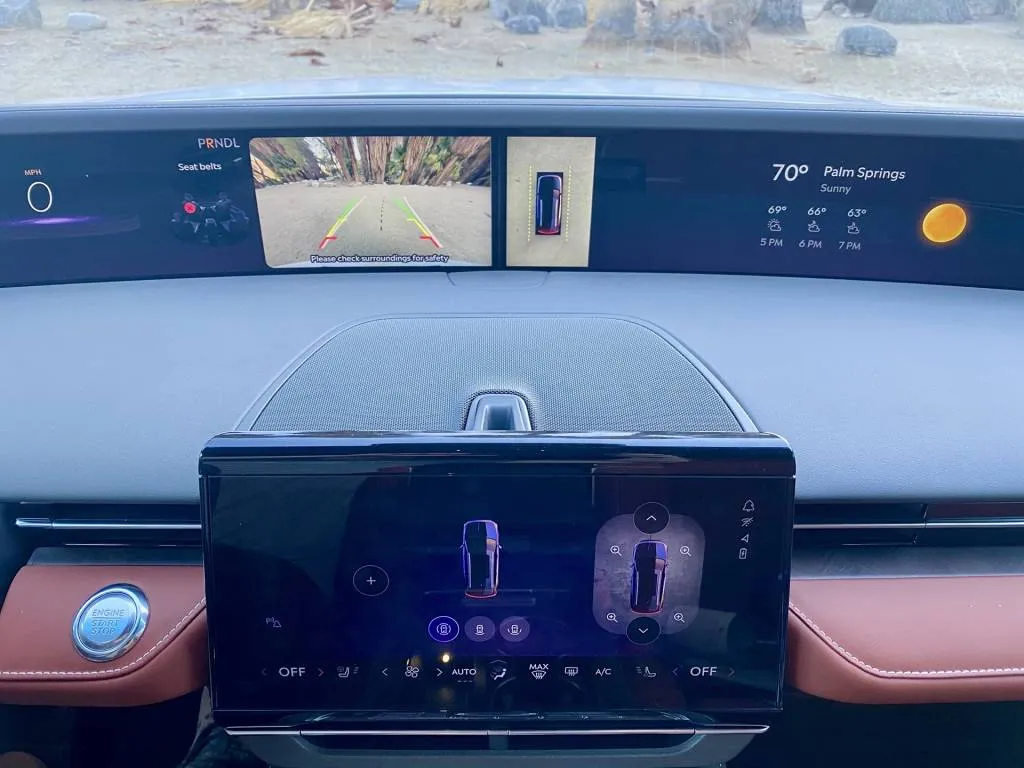
2024 Lincoln Nautilus
The navigation only becomes interactive on the 11.1-inch touchscreen sitting atop the center stack. The nav and other systems run on a Google built-in operating system, but wireless Apple CarPlay connectivity is still standard. The touchscreen is the only interface for both the broader display screen and for the climate and vent controls. I prefer climate dials and buttons, but Lincoln’s digital interface has some functions you couldn’t get in the analog world, such as an “off body” vent direction that turns all vents away from the driver and passenger, or an oscillating vent function that gently circles the vents around the cabin. It’s the little things with luxury cars.
About that Lincoln Rejuvenate thing
Maybe that explains Lincoln leaning into its four Rejuvenate themes. When equipped, it mixes one of seven available cabin scents with ambient lighting, climate control, seat movement, seat cooling, seat massaging, and a soundtrack in five- and 10-minute intervals.
“It delivers a curated experience to both relax and invigorate you,” Ford chief engineer Dante Crockett told me during an overview. “This is part of the car as a spa.”
One theme, “Aurora Borealis,” turned both the touchscreen and the display screen into a greenish tribute to the Northern Lights. It paired with a scent of Violet Cashmere (Mystic Forest and Ozonic Azure were also spritzed during the demo) coming through the vents, it moved the steering wheel up and out of the way, set the climate to 68 degrees, then, for the first half of the experience—the Relax phase—it leaned the seat back and activated the massagers. At the half-way point, it shifted to the Invigorate phase to “awaken” me with brighter colors, a blue mountain landscape on the screens, a different scent, a new seating position, and different massage and climate settings.
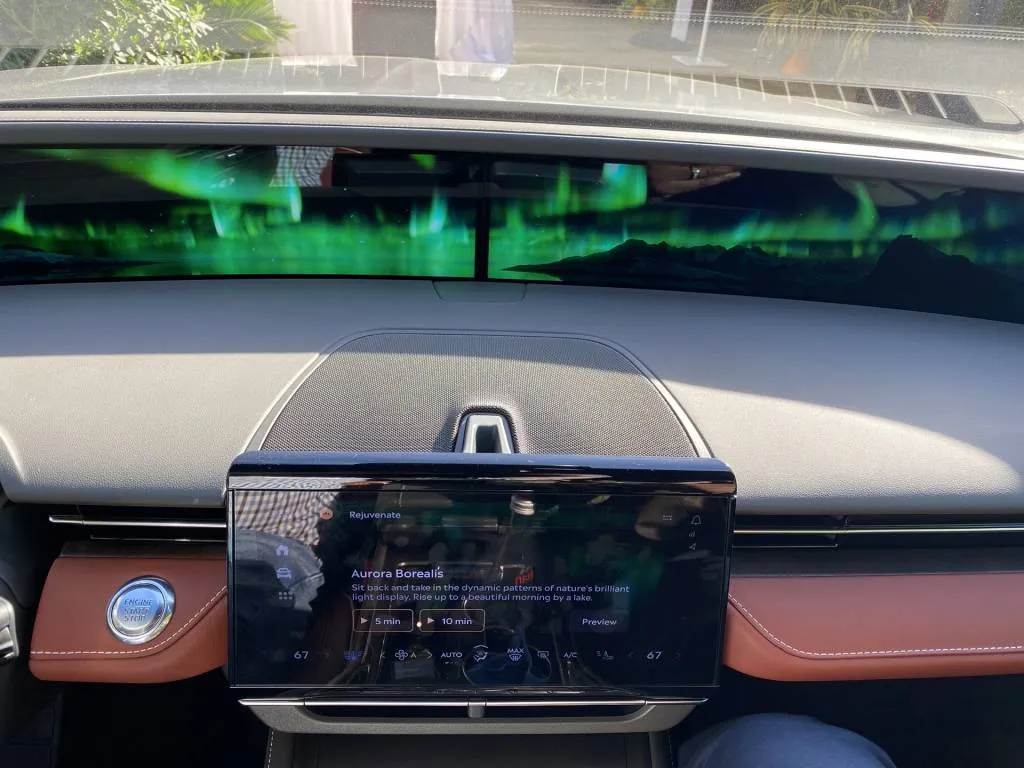
2024 Lincoln Nautilus
It’s standard on Black Label models and available on Reserve, but not until the 2025 model year that is expected to launch in August. Then, 2024 models will get an over-the-air update to make it work in those vehicles. The four themes and the myriad settings are mostly preprogrammed with slight customizations available. It’s a driver-only experience, for now, and it is completely and totally unnecessary.
That could be said about many things in luxury cars, from chilled center consoles to rear-axle steering. As someone who has spent a lot of time sitting in parking lots working or relaxing while waiting on kids, I could dig it.
The 11.1-inch touchscreen also controls what content can be displayed on the three elements of the passenger side of the 48.0-inch display. It can show three out of seven selectable widgets, but they’re pretty basic, ranging from weather to a clock to trip meters and fuel economy. Even though a front-seat occupant could play a video game on the touchscreen (as long as the Nautilus is in Park), that doesn’t translate over to the big screen, nor do any streaming services or any customization of the available widgets or how the driver info is displayed to the driver. Even with the hybrid powertrain, the Lincoln Nautilus’s expansive digital real estate lacks an energy monitor display.
We’ll see what future over-the-air updates bring across this wide but untapped digital real estate.
About that flat steering wheel in the Lincoln Nautilus
Another design element showcased in the Star Concept and enabled in the Nautilus is the steering wheel. It’s flat on top and bottom, and spokeless on the top, so it’s yoke-like. It doesn’t reinvent the wheel as much as make the gauges more visible. Adjusting the power steering column and the power seats had mixed results in terms of gauge visibility from the handful of people I asked. It was fine for me at 5-foot-8.
It’s easy to see it being used in other applications, especially electric ones. The steering feel from the electronically assisted rack veers to the leisurely side with a 16.5:1 ratio, and there’s little road feel, but that’s all in character for a car built for comfort, not for speed.
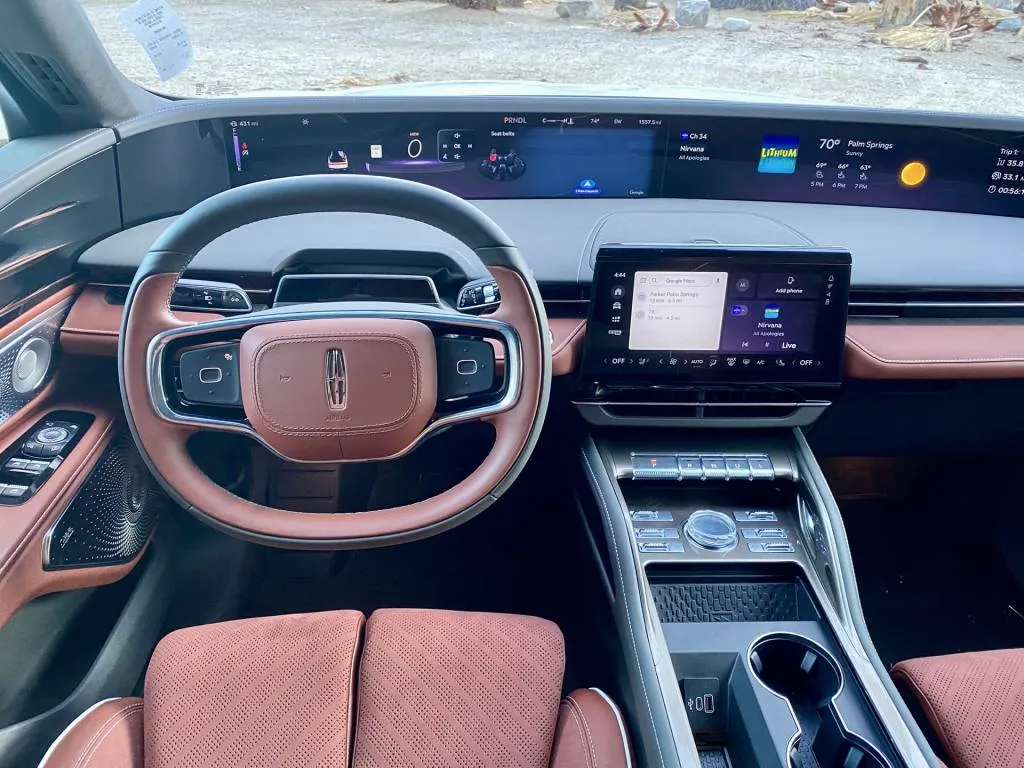
2024 Lincoln Nautilus turbo-4 performance
Electrification on the 2024 Lincoln Nautilus comes from a new hybrid system, while the 2.0-liter turbo-4 carries over from the previous Nautilus.
I drove a Reserve gas model and a Black Label hybrid in the mountainous climes beyond Palm Springs, Calif. The 2.0-liter turbo-4 produces 250 hp and 280 lb-ft of torque, delivering adequate power for a big car weighing in at 4,349 pounds with standard all-wheel drive. It comes with an 8-speed automatic transmission that would benefit from paddle shifters to neutralize the turbo lag when dropping a gear or two for passing moves. Otherwise, the automatic shifts predictably and quietly.
In Sport mode, with the gear shifts delayed and the ambient lighting glowing red, expect a 0-60 mph time of about seven seconds. The drive mode button in the center console looks like a toggle and would serve the Nautilus better as a toggle; push it and it opens up the drive mode menu on the touchscreen. It would be more direct to flick through a toggle or dial.
Dynamically, the Nautilus isn’t sporty as much as it is comfy with its solid front struts and rear multi-link suspension. The tester had optional adaptive dampers, which are standard on Black Label and hybrid models. It handles as expected for a midsize crossover, planted but with plenty of lean. German models better balance performance and comfort, while the Nautilus with its acoustic laminated windshield and active noise cancellation leans more to the comfort side of the equation.
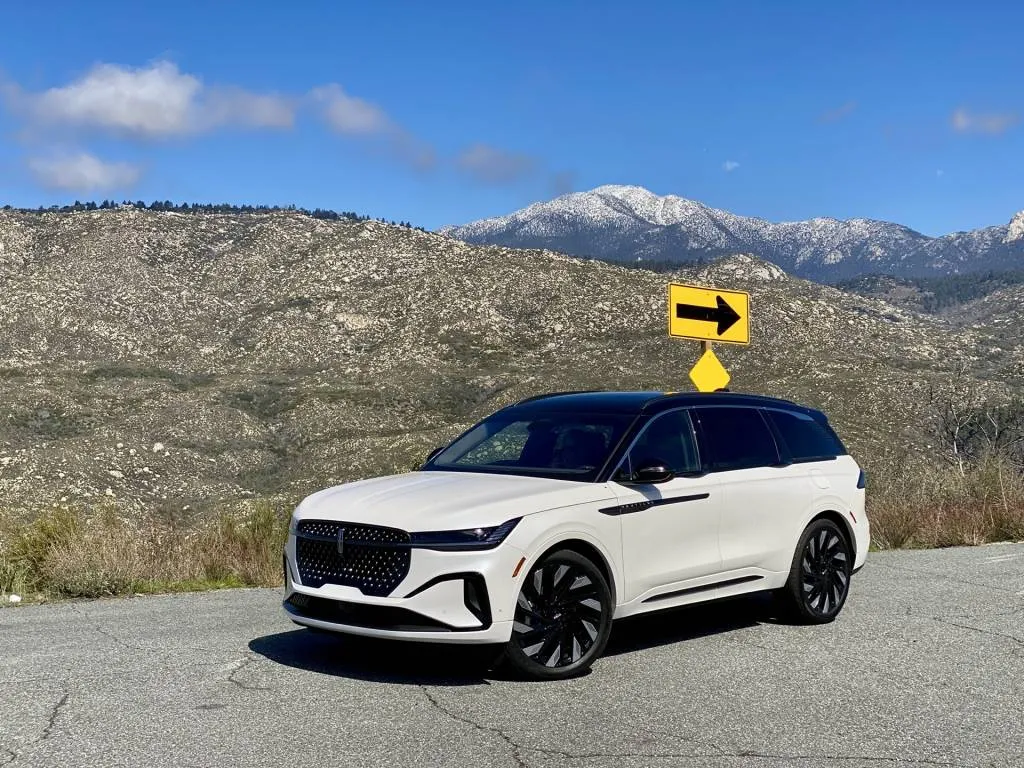
2024 Lincoln Nautilus hybrid performance
That comfortable and quiet ride is more pronounced in the Nautilus hybrid. It bolts on a larger turbocharger to the turbo-4 that changes the airflow rather than the boost pressure. That version of the 2.0-liter makes 300 hp and 295 lb-ft. Combine it with a 100-kw motor and a hybrid transmission, and max output increases to 310 hp. Lincoln did not disclose torque for the hybrid.
The power bump is good enough for a mid-six second 0-60 mph time, but adding 168 pounds of hybrid components such as the lithium ion battery pack stowed in the floor has its tradeoffs. The drive mode software and chassis tuning is a little different for the hybrid, and when I pushed it on curvier roads the weight transfer and traction control felt more inconsistent than the gas model, resulting in some unexpected rear tire spin coming hard out of a few turns.
It isn’t significant enough to discourage Nautilus shoppers from the hybrid, which is only a $1,500 upcharge from the gas model. It gets 30 mpg combined, compared to 24 mpg combined with just the turbo-4, so the EPA estimates in fuel cost alone you’d make up the upcharge in less than four years.
The more you drive it around town, where the Lincoln Nautilus hybrid shines brightest, the more it makes cents. It’s hushed at low speeds, and the power transfer is unnoticeable unless the driver goes heavy on the pedals and gets every passenger seasick. It’s a comfier, quieter, and roomier alternative to the Lexus RX, but it’s not as efficient.
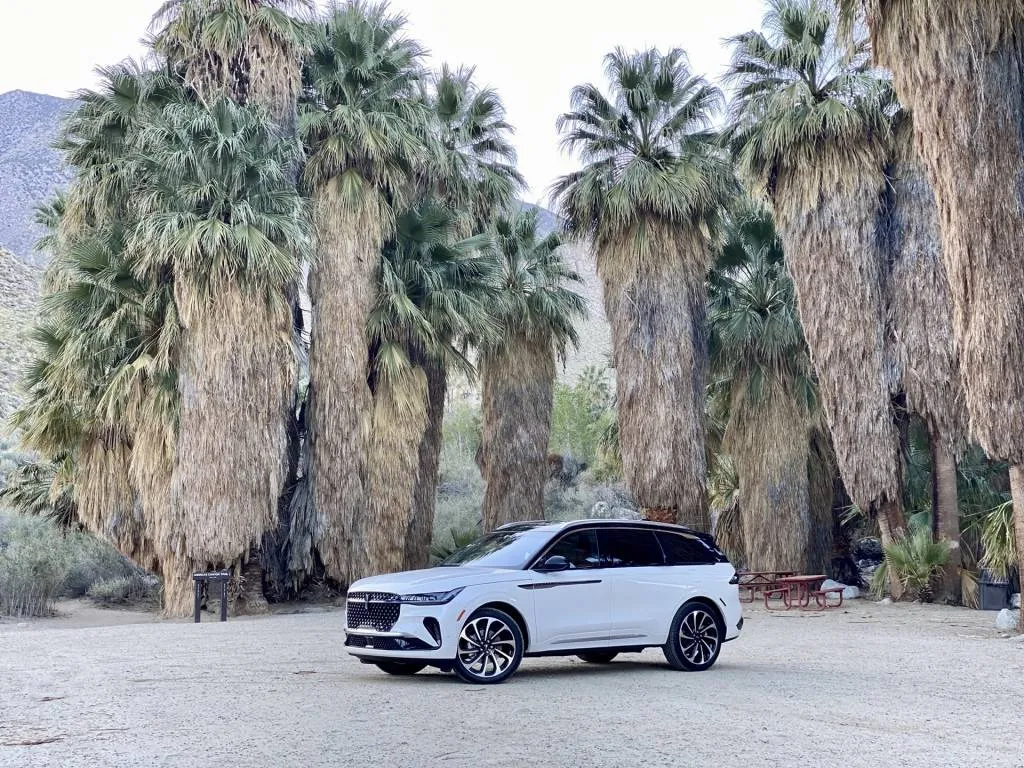
Which 2024 Lincoln Nautilus is best?
The Nautilus Hybrid Premiere is easy to recommend at a starting price of $53,510, including destination, but the Black Label nears $80,000. While there are all kinds of luxury indulgences at that price, from the excellent Revel sound system to the sumptuous 24-way massaging front seats, that’s a lot of coin relative to some luxury crossovers with more of a performance element. But few can match the comfort and roominess of the 2024 Lincoln Nautilus.
Lincoln provided airfare and lodging for Motor Authority to bring you this firsthand report.
